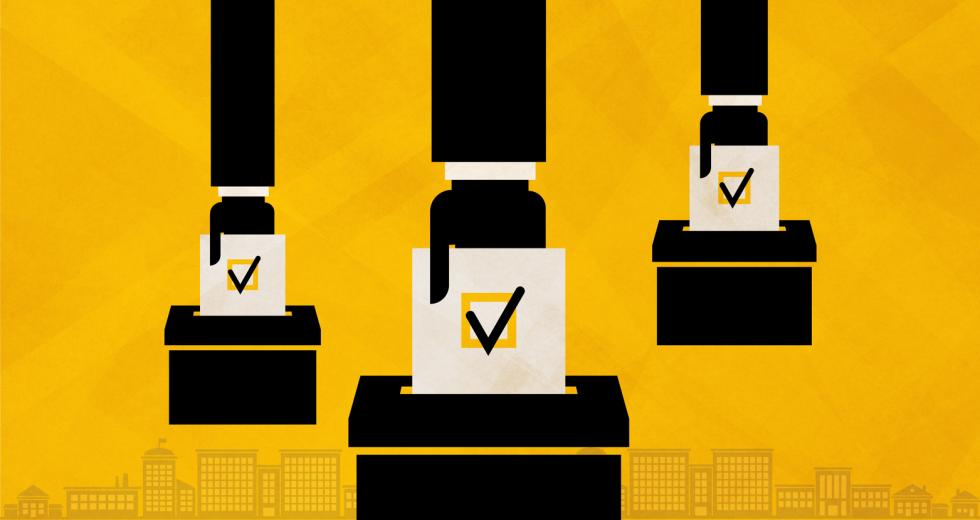The concept of reaping what you sow applies in all walks of life. No one would ever expect the Golden State Warriors to win the NBA championships if they didn’t practice in the off-season.
But often in politics, businesses and the organizations that represent them wait until the last hour to advocate their position. Then they are surprised when they lose to organizations that have put in the hard work of fighting for their perspective. It’s an odd problem, because businesses are usually, by nature and careful planning, strategic. Leaders spend hours strategizing and executing to maximize their bargaining position in the boardroom. But, when it comes to the political and regulatory environment, this mindset is absent.
While elected officials carry some of the responsibility for the policy decisions they make, the California business community also carries blame. For years, businesses have failed to organize their communities and win their cases in the media. These failures have manifested themselves in 2016 with a slew of bad policies and decisions by elected officials and voters — whether with the crushing $15 state minimum wage or with ballot box denials of development projects and policies in Yolo and El Dorado counties.
But businesses have gotten it right before in this region. The state may have raised the minimum wage to $15 per hour, but the City of Sacramento rejected the idea and created a common-sense compromise. El Dorado voters may have passed a measure essentially banning growth, but two years ago they denied an almost identical measure. Davis voters may have rejected Nishi Gateway, but across the region dozens of much bigger, more complicated and even controversial projects gained approvals. So what differed in each of these instances? In some cases, business leaders failed to effectively engage and communicate with elected officials and local voters. Don’t make the same mistake.
Here are some steps to build a winning voice for your business or organization by better engaging elected and community leaders. While these concepts seem simple, they require discipline and follow-through. But, whether you are trying to get a building permit, open a restaurant, fix a light in front of your business or pass a controversial development project, these are steps everyone can take.
Never Burn a Bridge You Might Have to Crawl Back Over
Recognize that elected officials, community leaders and candidates are human (no matter how powerful they are). Relationships and kindness matter in the public space. Businesses should build relationships focused on shared values, win-win ideas, and developing trust with decision-makers and community leaders. You can’t just show up angry when you need support. This doesn’t mean you can’t fight for your position or project; but it does mean businesses need to be thoughtful about what they say and how they say it. Today’s opponent could be tomorrow’s ally. This is why tact, consistency and honesty will always matter in politics. But most importantly: Don’t burn a bridge you might have to crawl back over.
It’s not good enough to be right; you have to look right
At the end of the day, you want to ensure that if you have an action item before a city council, regulatory body or neighborhood association, you have more people there to support you than oppose you. Elected and community leaders are visually-oriented: They want to see the support for your proposal right in front of them. Oftentimes, businesses forget this and forget that democracy is about moving people for causes. Businesses will often go to public hearings alone — armed only with data and facts — and wonder why elected officials don’t see the world their way. But, the strongest facts in the world standing opposite of 100 organized community members means nothing. Elected officials and neighborhood association leaders know that facts and stats can be manipulated to make almost any argument, so they are hesitant to believe them. Seeing the people who vote on whether or not they stay in office or in leadership is a language they understand.
People Help Their Friends
Every business — especially small businesses — should find ways to connect with their community. You need to build old-fashioned relationships so that if an issue arises, you have a network of support. For example, if you’re a developer and you have a potentially controversial infill project, engage directly with the community. Walking door-to-door yourself months before you propose a project is a good way to build allies and get feedback on project design. However, very few actually do this. Honestly engaging people early in a process is an easy way to earn trust.
The Best Defense is a Good Offense
Don’t wait until something is wrong to engage your community or elected officials. Proactively create an agenda of measures or activities you are pushing to help your business succeed. The more you demonstrate an ability to get things done, the less likely you will be a target. For example, if you’re a restaurant owner and worried about predictive scheduling rules coming down from the city council, don’t wait until this item is before your councilmembers. Engage in simple issues and build some small wins: This will help you immensely by giving you a larger voice when the difficult issues arise.
Despite the region’s challenging regulatory environment, Sacramento is on the move and has the ability to be the home of a great American city with strong suburban cities. However, if businesses are absent from the decision process, we could lose the momentum we’ve all worked so hard to gain.



